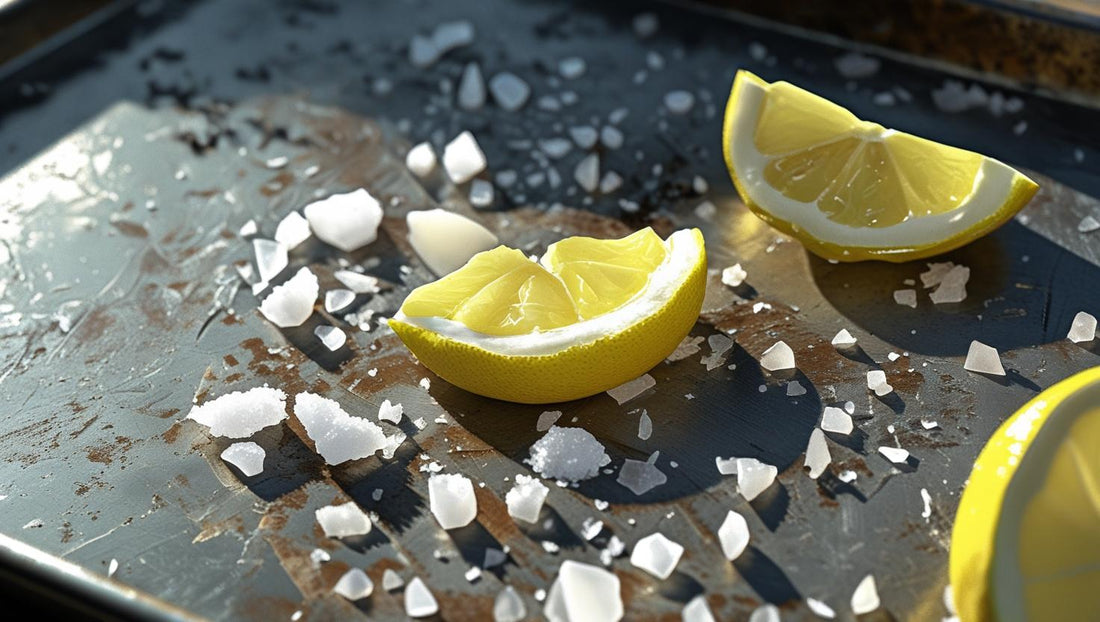
Natural Cleaning Wonders Straight from Nature
Share
In a world where we’re increasingly conscious of what we eat, breathe, and touch, it’s no surprise that many people are turning to nature to clean their homes too. Why fill your home with harsh chemicals when some of the best cleaning agents are already available in your kitchen or garden?
Here’s a guide to natural cleaning solutions straight from nature — effective, affordable, and eco-friendly.
1. White Vinegar – The All-Purpose Hero
Derived from the fermentation of grains or fruits, white vinegar is one of the most versatile natural cleaners. Its acetic acid content cuts through grease, dissolves mineral deposits, and neutralizes odors. According to the Environmental Protection Agency’s Safer Choice Program, using safer ingredients like vinegar in household cleaning can help protect your family's health and reduce pollution.

Uses:
- Mix with water (1:1 ratio) as an all-purpose surface cleaner.
- Combine with baking soda to scrub tough stains.
- Use as a fabric softener in your laundry.
Note: Avoid using vinegar on granite, marble, or other natural stones as the acid can etch the surface.
2. Baking Soda – Nature’s Scrubber
Baking soda (sodium bicarbonate) is mildly abrasive, which makes it excellent for scrubbing without scratching. It also neutralizes odors and reacts with acids to lift stains. For more information on how baking soda works as a gentle abrasive and deodorizer, check out this science-backed article from Healthline.
Uses:
- Clean sinks, tubs, and countertops.
- Deodorize carpets by sprinkling and vacuuming after 15 minutes.
- Unclog drains when combined with vinegar and hot water.
3. Lemon – Fresh, Fragrant, and Effective
Lemons are not just for cooking. Their citric acid content makes them effective against bacteria and mildew, while their natural oils add a refreshing fragrance.
Uses:
- Rub half a lemon on cutting boards to disinfect and remove smells.
- Mix lemon juice with olive oil as a natural wood polish.
- Use with salt to scrub rust off metal surfaces.
4. Salt – More Than a Seasoning
Salt is a gentle abrasive and helps to lift grime and boost the cleaning power of other natural agents.
Uses:
- Combine with lemon to clean copper and brass.
- Use coarse salt to scrub cast iron pans without removing seasoning.
- Mix with vinegar to tackle mildew in bathrooms.
5. Essential Oils – Fragrant and Antimicrobial
Many essential oils have natural antibacterial, antifungal, and antiviral properties — plus they smell amazing. Some essential oils, like tea tree and lavender, are known for their antimicrobial properties. A 2017 review published in the National Institutes of Health (NIH) outlines how these oils can help kill bacteria and fungi naturally.
Top Picks:
- Tea Tree Oil – great for mold, mildew, and disinfecting.
- Lavender Oil – calming scent with antibacterial properties.
- Lemon or Orange Oil – cuts grease and freshens up the home.
How to use:
Add a few drops to your DIY cleaners or mix with water in a spray bottle for a refreshing room spray.
6. Castile Soap – A Natural Liquid Soap
Made from vegetable oils, especially olive oil, castile soap is biodegradable and gentle on the skin — yet powerful enough to clean almost anything.
Uses:
- Mix with water for a simple dish soap.
- Use in laundry as a mild detergent.
- Combine with vinegar and essential oils for a natural floor cleaner.
7. Cornstarch – The Unsung Hero
Cornstarch can absorb grease and clean glass or polish furniture when used properly.
Uses:
- Clean windows when mixed with water and vinegar.
- Polish silverware.
- Absorb oil stains on fabric or upholstery.
Final Thoughts: Back to Basics
Nature has always offered us simple, effective solutions. By replacing store-bought chemical cleaners with these natural alternatives, you're not just saving money — you're protecting your health and the environment.
So next time you run out of cleaning products, take a look in your pantry or garden. Mother Nature might just have what you need.
